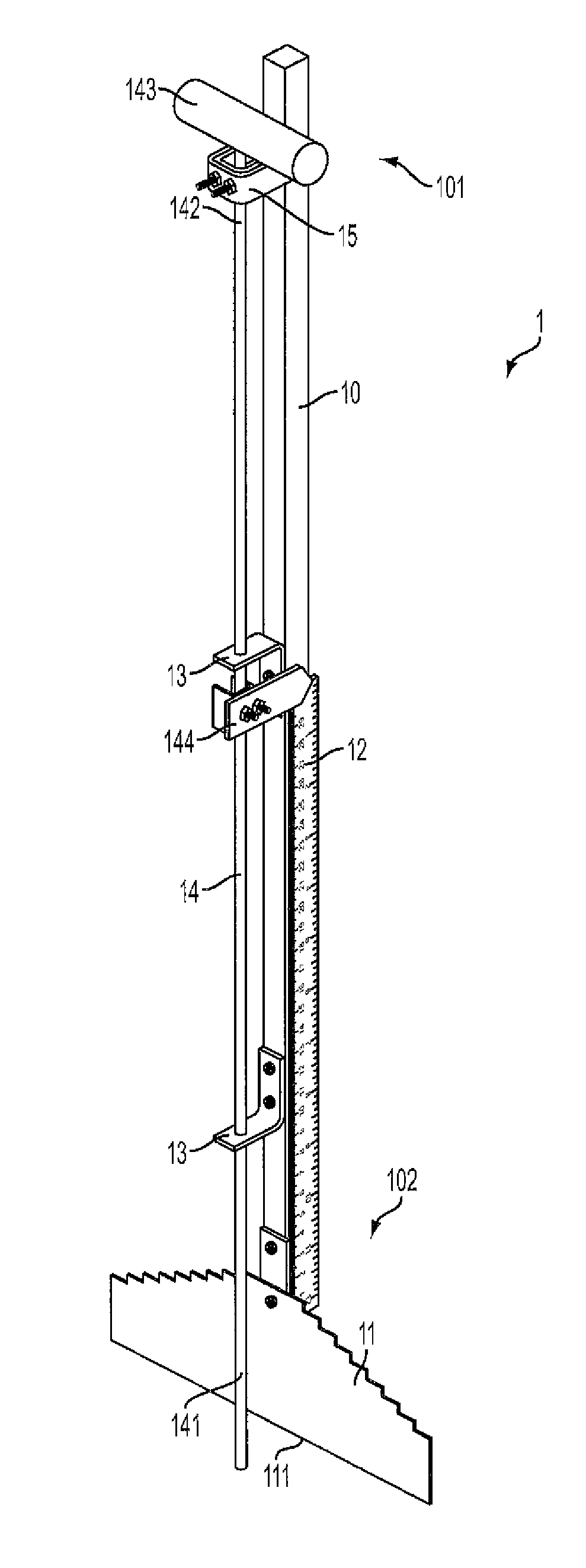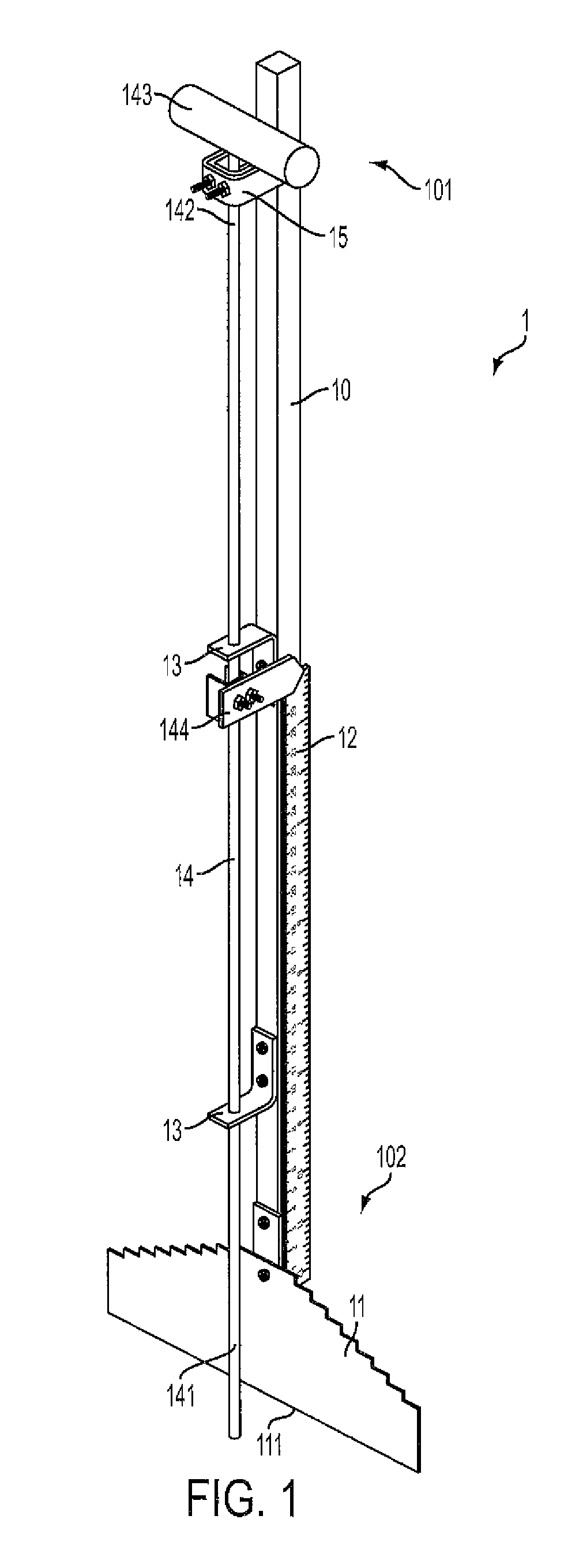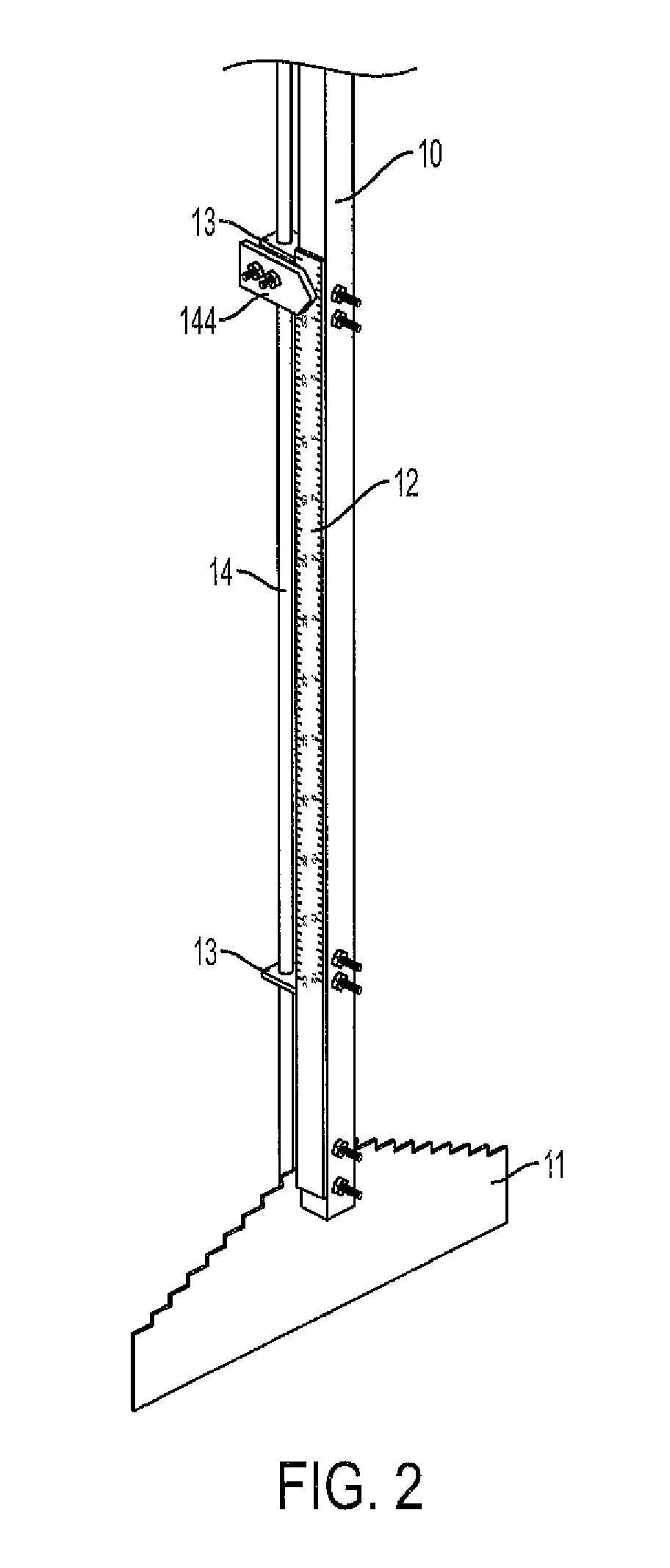Concrete deck measuring device
a measuring device and concrete technology, applied in the direction of mechanical measuring arrangement, instruments, machines/engines, etc., can solve the problems of increasing the cost of repair, restoration, or complete reconstruction, giving the inspector the false impression that the deck is not thick enough in that particular location, and hasty and inaccurate depth measurement, etc., to achieve easy-to-read measurement
- Summary
- Abstract
- Description
- Claims
- Application Information
AI Technical Summary
Benefits of technology
Problems solved by technology
Method used
Image
Examples
Embodiment Construction
[0031]FIG. 1 is a perspective view of one embodiment of the present invention. Shown is measuring device 1 comprising a primary support spine 10 having a proximal end 101 and a distal end 102. Support spine 10 comprises an elongated substantially rigid member configured as a rod or similar structure. Spine 10 may have any suitable cross-section sufficient to provide rigid support. For example, spine 10 may have a circular, square, or rectangular cross section. In some embodiments, spine 10 comprises a length of square bar composed of steel, aluminum, another like metal, or other suitable lightweight rigid material. Other materials and configurations of spine 10 are contemplated, provided spine 10 is suitably rigid to support its attendant components and to carry out the intended functions disclosed herein.
[0032]Fixed to the distal end 102 of spine 10 is a stepped blade 11 which, in some embodiments, is transversely disposed with respect to the length of spine 10. Stepped blade 11 fu...
PUM
 Login to View More
Login to View More Abstract
Description
Claims
Application Information
 Login to View More
Login to View More - R&D
- Intellectual Property
- Life Sciences
- Materials
- Tech Scout
- Unparalleled Data Quality
- Higher Quality Content
- 60% Fewer Hallucinations
Browse by: Latest US Patents, China's latest patents, Technical Efficacy Thesaurus, Application Domain, Technology Topic, Popular Technical Reports.
© 2025 PatSnap. All rights reserved.Legal|Privacy policy|Modern Slavery Act Transparency Statement|Sitemap|About US| Contact US: help@patsnap.com



